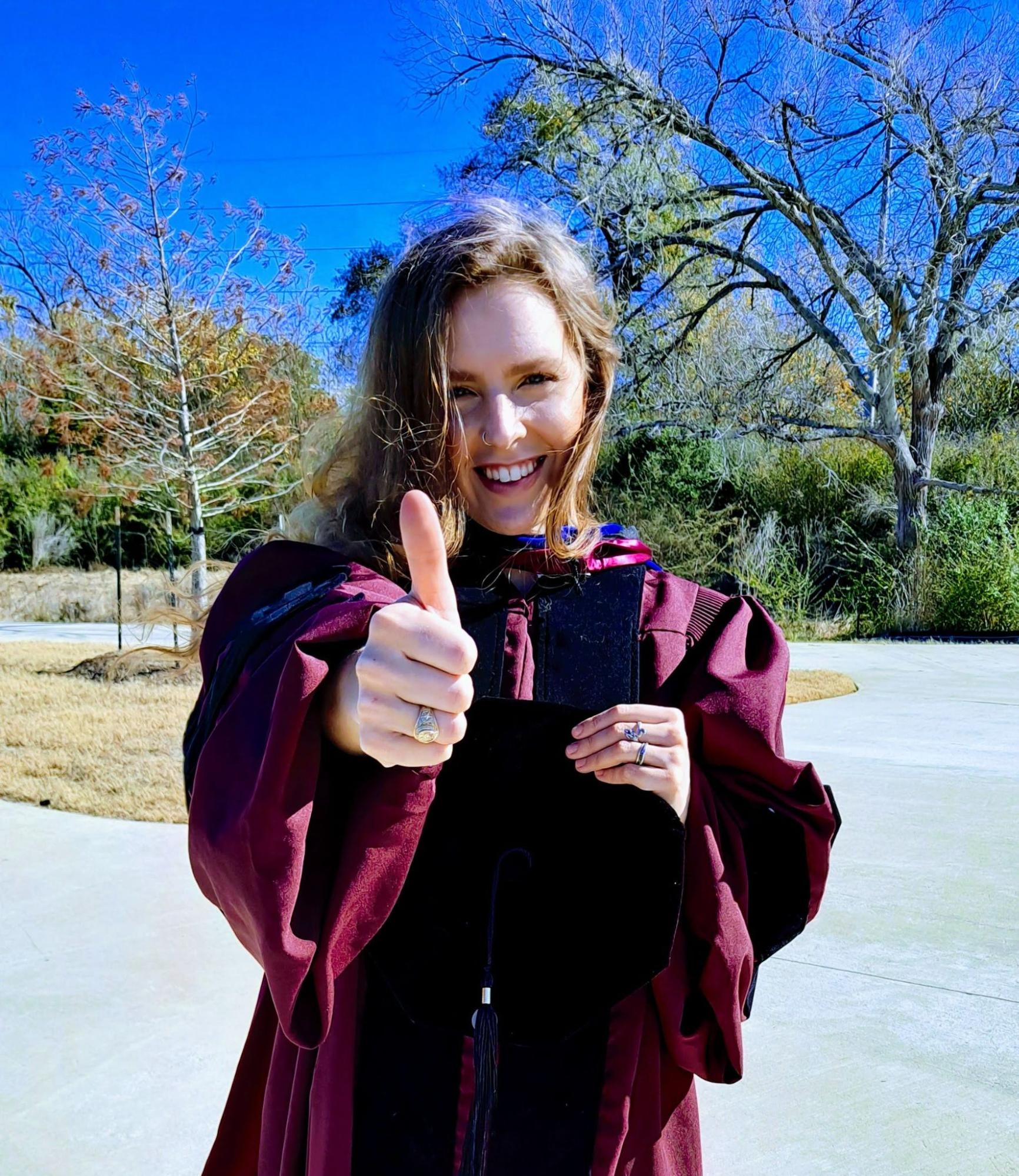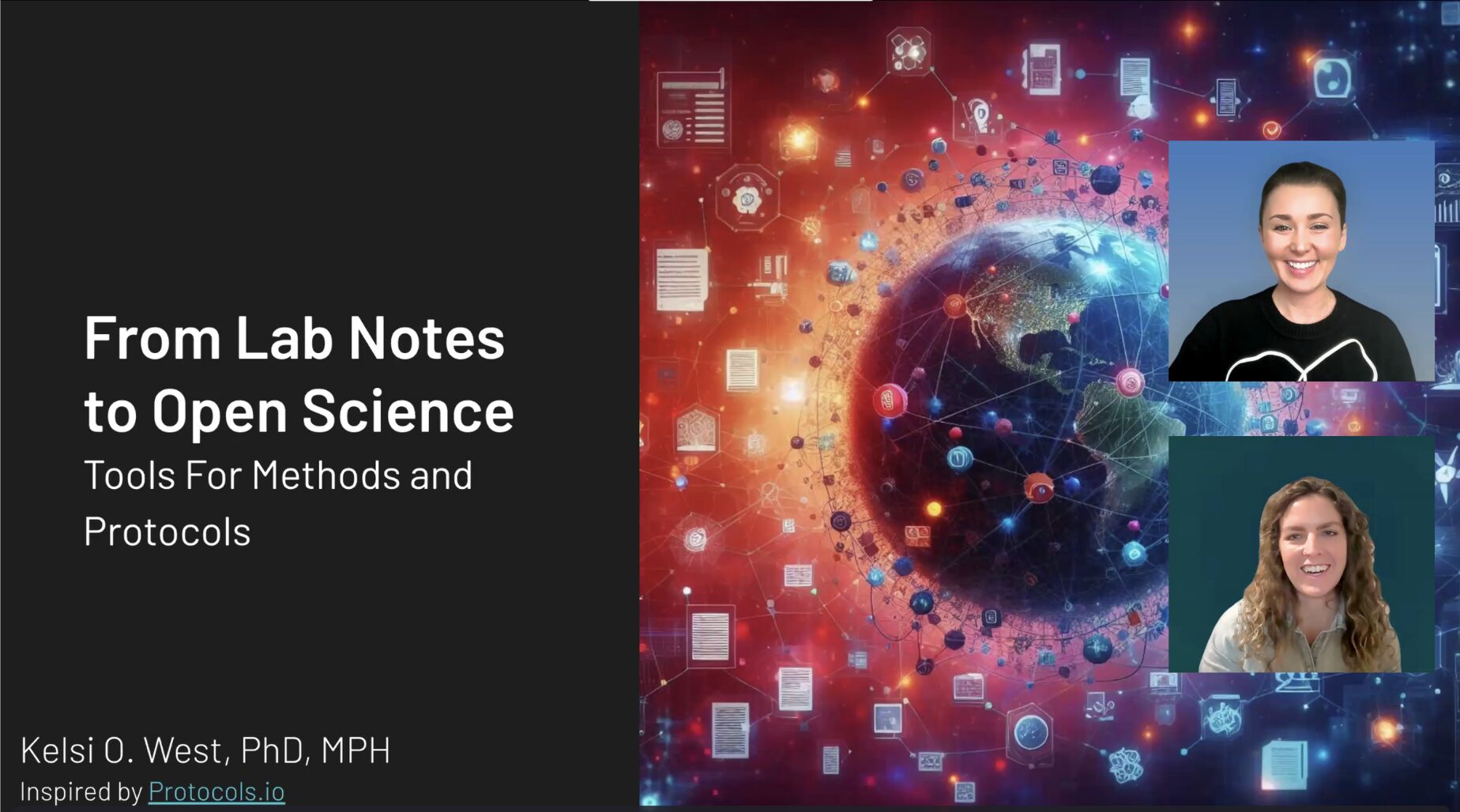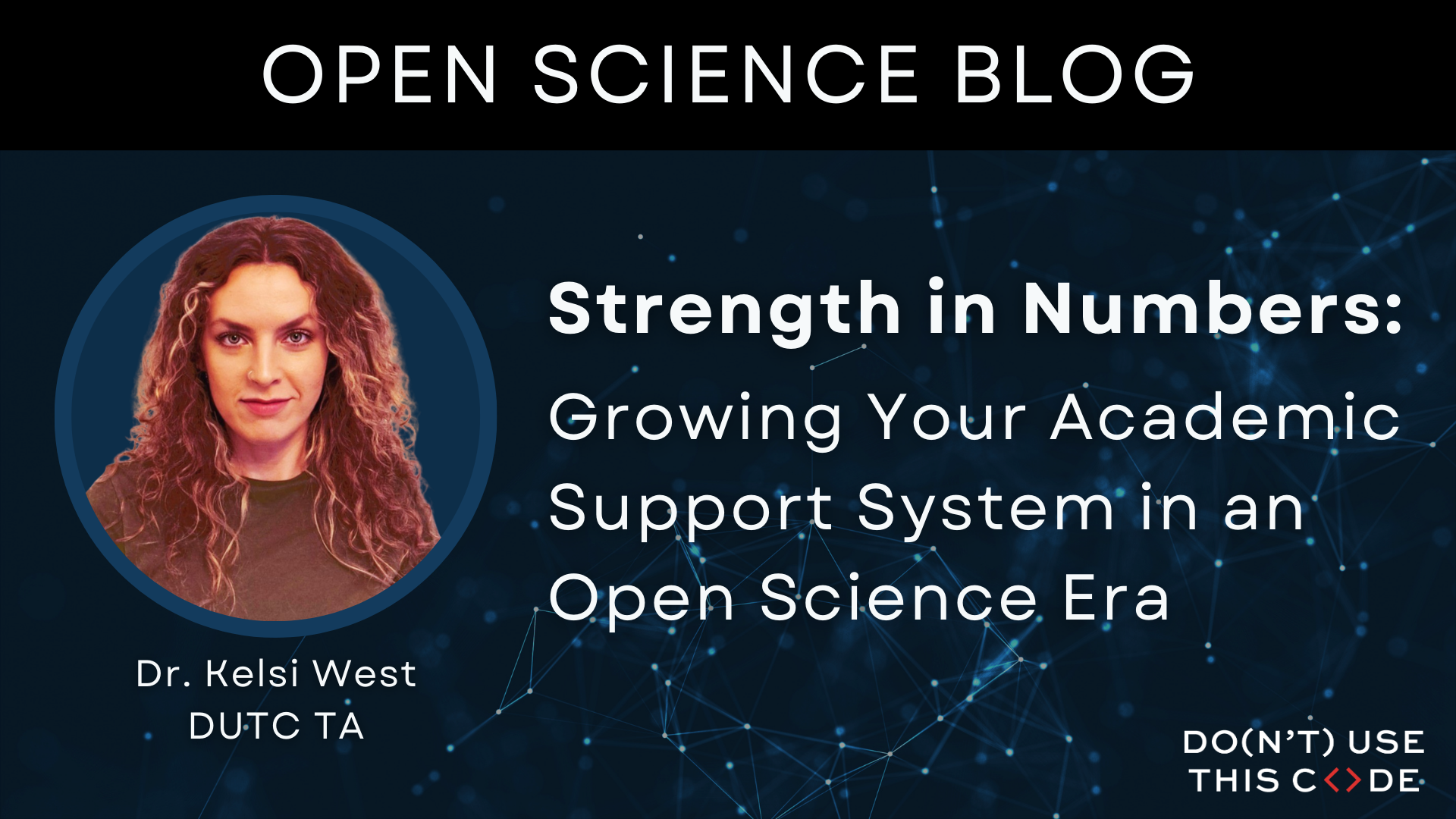Strength in Numbers: Growing Your Academic Support System in an Open Science Era
So, you’ve chosen the best advisor (i.e., PI, committee chair, etc.) — someone whose research and goals align with yours. That’s a huge step! (If you haven’t yet, check out my previous post about selecting an advisor!) Your advisor will play a starring role in shaping your research and day-to-day grad school experience.

But, have you ever heard the saying strength in numbers? Graduate school is no different. Your success depends not only on your advisor but also on a whole ecosystem: committee members, mentors, peers, and a strong department culture. In today's research landscape, this ecosystem is increasingly built on open science principles (e.g., sharing data, code, and methods; making research accessible; and fostering collaboration across traditional boundaries).
Much like the way pine trees stand tall together in a forest, these trees thrive by supporting one another. Their roots intertwine in a vast underground network, sharing nutrients and providing stability during storms. This collective strength helps them weather challenges, just as open science communities and support networks provide a strong foundation for researchers to grow, innovate, and succeed together.
The Pivotal Role of Additional Mentors and Committee Members
In most graduate programs, a committee is a group of professors who will ultimately approve your research proposal and decide if and when you can graduate. These are the professors who will guide you, challenge you, and ultimately help you transform from a wide-eyed student into a bonafide expert in your field. But what exactly do they do?
When you're working on a master's thesis/capstone or doctoral dissertation, your committee becomes an invaluable resource and sounding board. While they may challenge you at times, their purpose is to guide, mentor, and ensure you’re meeting the requirements—whether that’s completing your research, publishing papers, or fulfilling internships—all to set you up for a successful career.
How Committees Support You
- Offer Diverse Expertise: A well-rounded committee brings together professors from different but complementary areas of your field, providing broader perspectives and specialized knowledge. Look for members who practice open science—they often have experience with data repositories, preprint servers, and reproducible research workflows that can strengthen your work.
- Mentor Your Academic Growth: Beyond serving as reviewers, these professors act as mentors, offering guidance on your work and career trajectory.
- Monitor Progress and Timeline: Committees play a key role in ensuring you stay on track, meet milestones, and fulfill program requirements to complete your degree successfully.
Additionally, your committee members often write recommendation letters during your training and beyond. They can also mediate conflicts with your advisor, providing critical support and advocacy when needed.
Honestly? I wouldn’t have graduated when I did without my committee members. There were times they pushed my advisor and validated that I was ready to defend and move forward. They didn’t just offer advice; they cleared the path for me to succeed.
When I started to select committee members, my advisor had certain faculty “friends” he wanted on my committee. I went along with one of those suggestions, but I also fought for someone I knew would bring a fresh perspective and was known as a strong student advocate. My advisor pushed back initially, but I argued that outside opinions are sometimes the best opinions (something my advisor himself often said).
Fast forward: when my graduation timeline hit a snag from my advisor's requirements (not my program requirements), two committee members I trusted gave me the confidence—and actionable advice—to move forward. They agreed I was ready to graduate, and they showed me how to approach the situation. Within a year, I defended, graduated, and had my dream job.

When you’re just starting out, identifying the right committee members and additional mentors can feel overwhelming, requiring a certain level of discernment. (There’s a lot to be said about “Trusting Your Gut”!) But don’t worry—there are ways to identify supportive faculty. There’s no shortage of student insights and you can use that to your advantage.

Ask Around:
- Which professors are frequently on committees?
- Who has a reputation for graduating students on time?
- Who’s known for offering real mentorship—not just research expertise?
- Who maintains open lab notebooks or shares their research processes?
- Which faculty regularly deposit data in public repositories?
- Who participates in preprint communities or open peer review?
Here’s the truth: even the best advisor is still human. They are juggling their research, running a research group, securing funding, teaching, and advancing their career goals, which doesn’t always perfectly align with your ultimate goal—graduating, landing that dream job, and earning a real paycheck. That’s where outside mentors and committee members come in: they are there to advocate for you without the pressure of those competing interests.
They can...
- Offer fresh perspectives on your research
- Provide solutions when timelines start to slip
- Help navigate those tough conversations with your advisor
- Advise on making your research more reproducible
- Help you choose appropriate licenses for your research outputs
- Be cheerleaders, reference points, and future career connectors
Supplemental Mentors Explained
In addition to formal committee members, consider establishing relationships with supplemental mentors, such as additional faculty, staff, or even professionals outside your department. While these individuals aren’t officially part of your mentorship structure, they can offer invaluable advice and support. Often, they’re more than willing to take time to talk with trainees, providing fresh perspectives or a listening ear when needed.

Some advisors may not fully embrace these supplemental mentorships, but remember: your journey cannot rely on a single individual’s support. If your advisor actively discourages or takes offense to you seeking guidance elsewhere, it may raise a red flag regarding their approach to collaboration, communication, and overall support. Strong mentorship thrives in an environment that encourages diverse input and fosters growth through collective effort.
The Many Roles of Mentors: Why One Person Can’t Do It All
In an ideal world, a single mentor would cover all your needs. But realistically, no one person can be your advisor, therapist, coach, cheerleader, sponsor, and supervisor. Different mentors bring different strengths, and understanding these roles will help you build a well-rounded support system. Here’s a breakdown:
- Advisor: Provides field-specific knowledge, guides your research, and ensures your work gets done.
- Therapist: Some mentors provide emotional support or help you navigate challenges.
- Coach: Teaches specific skills, whether technical (e.g., coding) or professional (e.g., writing, presenting).
- Cheerleader: Offers encouragement and celebrates your wins.
- Sponsor/Advocate: Uses their power and connections to get you recognition and opportunities.
- Supervisor: Ensures that deadlines are met and your work progresses.
By recognizing these roles, you can strategically build a network that meets all your needs. For instance, your advisor may excel as a supervisor but lack the advocacy connections you need—this is where cultivating a relationship with another faculty member could make all the difference. Similarly, peers in your lab or program can be your biggest support, helping you through tough days and celebrating milestones.
A Strong Department Culture Makes All the Difference
Your department’s culture matters more than you think. In my program, we had monthly student talks, joint research meetings with other labs, and yearly retreats. These events weren’t just fun or educational, they were essential. They helped me…- Connect with other students and faculty
- Collaborate on research and gather valuable feedback
- Find mentors and committee members whose interests matched mine
- Learn how to make my research reproducible and accessible to others
- Explore tools and workflows for open science
- Build lasting networks for research collaboration
If you’re choosing a program (or just trying to improve your experience), here are questions to ask:
- Are there regular opportunities to present research?
- Is it common to collaborate across labs or departments?
- Does your advisor participate? If not, why?
- Are there retreats, seminars, or student organizations that foster connection?
If the answer is no, don’t be afraid to create opportunities. Propose student talks or joint meetings. Join organizations in related departments. Reach out to faculty whose work interests you. These connections will serve you well—not just in graduate school, but throughout your career.
The Power of Peer-to-Peer Mentorship and Support

While faculty mentors and committee members are invaluable, don’t underestimate the importance of peer-to-peer support in graduate school. Your lab mates, fellow students, and peers in neighboring labs are often the ones who see your daily wins and struggles—and they can provide a unique kind of encouragement and advice.
Peers are closer to you in experience. They’ve recently navigated the same challenges, whether it’s mastering a tricky technique, prepping for a presentation, or tackling imposter syndrome. This shared experience makes their advice especially relatable and actionable. Plus, they’re often the first to cheer you on for the small victories—those incremental steps that faculty might overlook but are crucial for keeping you motivated.
Building Peer Networks Beyond Your Department
Shared experiences and interests can help you form closer bonds with your peers, making the long hours more bearable—and even fun. Even if your lab/department dynamics aren’t perfect, you can still create a supportive peer network. Attend department events, join student organizations, connect with hobby groups, or participate in cross-lab initiatives. These connections can provide fresh perspectives and friendships that enrich your experience.
I am still core friends with several peers and faculty mentors from my graduate work, including Dr. Courtney Haun of DUTC! Their feedback and friendship has provided immeasurable benefits to my life and career. I truly value the relationships I built with my peers and additional faculty and they have provided me with guidance and opportunities that I never would have been able to accomplish on my own or with just a single mentor. And I’m the first person to want to “tough it out.” But more on that in my next post!
Final Thoughts
Grad school is hard, but it shouldn't be done alone. Build a support network that goes beyond your advisor. Surround yourself with committee members, mentors, and peers who lift you up. And remember—strength in numbers will get you to the finish line.
Keep Your Eyes on the Prize
Grad school is just a stepping stone to your future. Whether your dream job is in academia, industry, government, or something else entirely, make sure your time in graduate school works for you:
- Research jobs you want post-graduation and figure out what they require. (e.g., publications, technical skills, leadership experience, teaching)
- Use your committee and mentors to help you meet those goals.
- Ask for advice, connections, and insight on your future career.
- Build a portfolio of open science practices.
- Learn version control with Git
- Create detailed documentation
- Publish preprints
- Contribute to open source projects
- Attain your NASA Open ScienceBadge (Sign up for our next training here!)
When you find the right people to support you, challenge you, and cheer you on, grad school becomes less of a grind and more of a launchpad for your future. By embracing open science practices along the way, you'll develop collaborations and valuable skills that will serve you well throughout your career.
